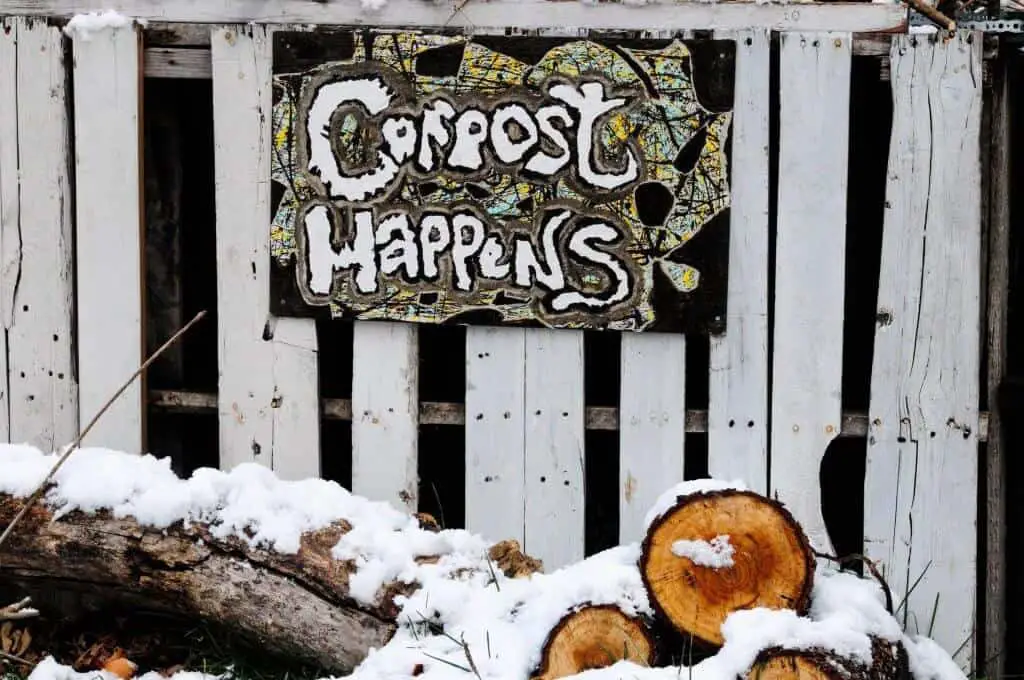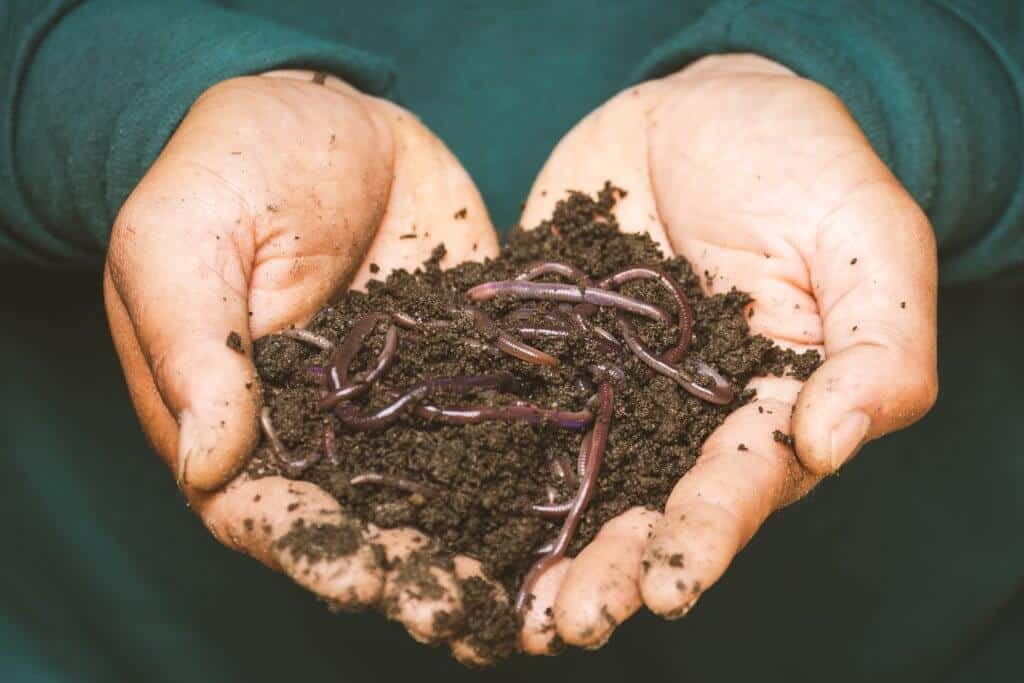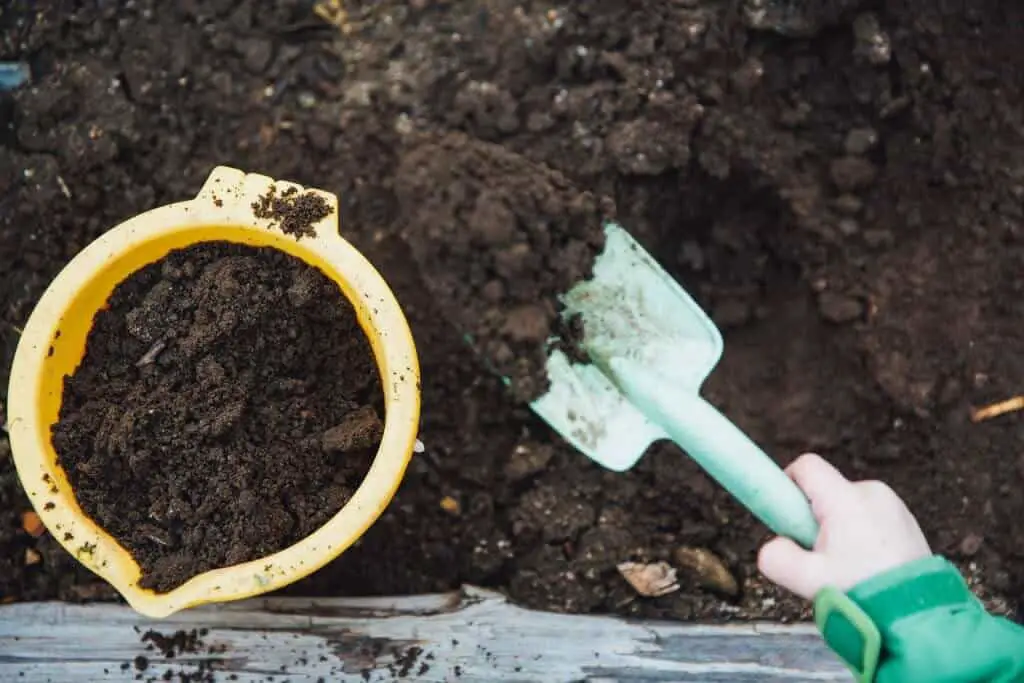What would you think if I told you that fishing worms and fish waste could be used in composting? It sounds like a good idea, but can they actually be used to make healthy soil for plants? In this article we’ll explore the question of whether or not fishing worms and fish wastes can be added to your compost pile.
Fish scraps have been used as fertilizers since thousands of years. It is easy to make your own fertilizer by composting fish guts with organic waste from your kitchen. On the other hand, worm composting uses the power of worms to break down waste material.
Not only does it give you a convenient way to dispose your organic waste to a simple pile, but it even provides compost that feeds and nurtures the plants and seeds in your garden.
Both these practices help in creating free fertilizer and in preventing tons of trash from going into the landfill. Moreover, you can end up saving a couple of bucks with this organic home-made fertilizer. Let us first look at whether you can compost fish and fish waste.

Can you compost fish and fish waste?
Did you know that the Native Americans used to bury a fish at the base of every plant? It is because they considered it to be an amazing fertilizer. Fish parts can be composted to produce nutritious manure.
So, the next time you clean and cook fish do not throw the waste into the bin. This is because composted fish scraps serve as nutritious food for the plants in your garden.
Composting is a process in which organic materials are converted into complex macromolecules with the help of microorganisms such as bacteria and fungi. These macromolecules such as proteins, lipid, carbon and nitrogen are absorbed easily.
Once the fish starts to decompose it will give out a strong smell and may also attract rodents. But as this waste is organic it will eventually decompose, though it might take several weeks.
If you are residing in an area that has a proximity to wildlife then it is advisable not to compost fish because wild animals such as bears are attracted by the odor of the fish parts from the piles.
About Fish Scrap Compost
A few years ago, it was a common practice for anglers to throw the fish scraps (comprising head, tail, guts, and scales) back into the waters. However, this practice has now been abandoned by anglers across the world and has been criticized heavily.
That is because it is not considered safe for the environment as it damages the vegetation and disrupts the ecosystem.
So, rather than disposing the fish innards and scraps into the water, you can use a closed bin or a pile to compost them at home. Many fish shops located near big lakes and rivers also offer you the option of disposing fish waste and you can come back to collect the manure in a year.
This practice not only protects the environment but also works as a good fertilizer for your garden. So, let us get started on how to try to make a compost out of fish innards and other waste from your kitchen.
How to Compost Fish Remains
The first step in composting is to get all the ingredients ready. So, after having scaled and filleted your fish, you need the fish remains, along with some plant waste such as wood chips, bark, leaves, and branches.
The next step is to mix one part of fish scrap with three parts of plant waste in a container. Go for a container with a lid to minimize the strong odor that is released as soon as the fish starts decomposing. Make sure that you stir the mixture to ensure proper aeration.
Check your composting bin after a couple of months and you will find a finished nutrient rich liquid that will work wonders in your garden.
The Benefits of Using Fish Waste for Composting
Fish waste composting has a plethora of benefits for you as well as for the environment. It provides nutrients rich fertilizer to your plants and is a soil amendment, improving its quality in the process.
Fish compost is also effective in combating diseases in plenty plants and is found to decrease parasites. Moreover, fish waste resources prevent our waters from getting contaminated and are good for the environment.

Can Fishing Worms be Used for Composting?
Although you can use almost all the worms to fish, not all of them are good for composting purposes. Composting worms should have faster reproduction and should be able to survive in captivity.
The Different Types of Worms you can use to Fish AND Composting
The worm farms in North America and Europe mainly raise two types of earthworms that are great for both composting and fishing. These two worms are Lumbricus rubellis and Eisenia foetida. Both these worms have a plethora of common names such as red wrigglers, red worms, brandling worms, tiger worms, manure worms, etc.
Another popular variety of worm goes by the name of The European Night Crawler and is also referred to as Eisenia hortensis or Dendrobaena veneta. This earthworm grows to a length of around 6 inches in size and is bluish pink in color.
This large earthworm is not only great for composting but is also a popular bait to fish with, as it continues to wiggle underwater and helps in catching the fish’s attention.
How to Catch Worms for Composting
Before you venture out for hunting worms it is good to get a bucket or a bin and put some mud into it. Ensure that the bin has holes in it for the worms to stay alive. So, when you catch the worms you put them on the mud.
Red worms can be caught by looking for rotting plant material near your area. These worms can also be found in your garden and they stay close to the ground just a couple feet under the cover. If you intend to catch the European Night Crawler then look for them in your gardens as they thrive there. These worms live deeper in the fresh earth as compared to the red worms.
All these worms love to feed on cardboard so a simple trick is to leave wet cardboard in your garden at night. You will see an accumulation of worms underneath the cardboard in the morning.
There are ample of websites suggesting other ways of catching worms such as using harmful chemicals but you should avoid anything that can destroy your garden and is hazardous for the environment.
How to Compost with Fishing Worms
Worm composting is also referred to as vermicomposting and it helps to turn the green waste from our kitchen into fresh rich and dark soil that is beneficial for crops. For composting the worms need to be kept in a bin that has holes in it. You should place the bin away from the din and bustle as these beings are very sensitive to light and sounds. Keeping them in your basement is a good idea.
These worms need an optimal temperature of 13-25°C to thrive and multiply. If you have enough shade then you can keep these bins outside during summer months, however, you need to bring them inside during the winters as the temperatures might fall significantly below this threshold.
Make sure that you provide your worms a good bedding so that they can feel at home. The bedding should occupy nearly half of the bin. Use cardboards, decomposed leaves, and bits of newspapers.
Mix all these together with some dirt and add water to keep the bedding damp as it is an ideal environment for the worms to thrive. Avoid anything that can be toxic for the worms as they will consume the bedding.
Once the bedding is in place you can create some space in it for keeping the worms. But do not close the lid so that the worms are exposed to light and are encouraged to get inside the bedding.
The next step is to leave the worms inside the bin for a week so that they get used to their new surroundings. Introduce food only after the first week and provide organic waste such as vegetable scraps and fruit peels.
Do not offer them meat or dairy products as they might attract rodents and flies. Feed your worms every week and you will see that within a couple of weeks you will have a lot of compost.
The Benefits of Using Fishing Worms for Composting
The vermicompost is beneficial in providing nutrients to the soil. It helps to improve the structure of the soil and also helps it to hold more water. Research also suggests that using fish worms for composting improves the overall health of the soil by improving aeration, promoting internal drainage and providing good bacteria.

Frequently Asked Questions (FAQ)
I tried composting fish in my garden but it smells really bad. What should I do?
Fish compost does have a strong odor especially in the initial days. If proper aeration is not provided then the bacteria and other microorganisms will not be able to decompose the raw material and this will result in a bad smell.
So, make sure that you mix the compost routinely so that it gets aeration and the smell begins to fade. Additionally, you should ensure that the bin receives adequate sunlight so that an optimal temperature is maintained for the breakdown of the pile.
Also, avoid putting dairy products, meat, and animal fat to prevent strong odors.
Do I require a bin to make fish compost?
No, fish compost is organic matter and will decompose even without a bin. But a covered bin is helpful in containing the odor and also protects the waste from weather and other pests.
However, in areas where bears and other wild animals are in the vicinity it is advisable to not compost fish as its smell may attract these animals.
I want to compost fish waste during the winter season. Is that possible?
Yes, it is possible to compost during the winters. So, during fall you can insulate the bin by covering it up with leaves as this will help in keeping it warm. Additionally, you can also use a compost activator that helps in increasing the temperature so that the decomposition is accelerated.
How do I know that the composting process is completed and it is safe to use?
The compost is ready when you cannot spot the individual components except for an occasional leaf or an eggshell. Moreover, the color will change and it will become brown and will smell like humus.
How do I know that the worms in the bin have got a suitable environment?
If your worm container has an earthy smell then it signifies that the worms are happy. Do not feed them excessively and keep stirring occasionally to maintain airflow. You can also ensure adequate airflow by mixing newspaper bedding and stirring it.
Also, check that the holes in the container are not blocked.
Let’s Compost Together!
Fish parts composting with some wood chips and vermicomposting work wonders for the plants in your garden. Also, it is really not that difficult to make your own organic fertilizer product, that is cost-effective and can be composted right in the comfort of your home.
For more info on sustainable fishing methods, check out our article on this topic 🙂